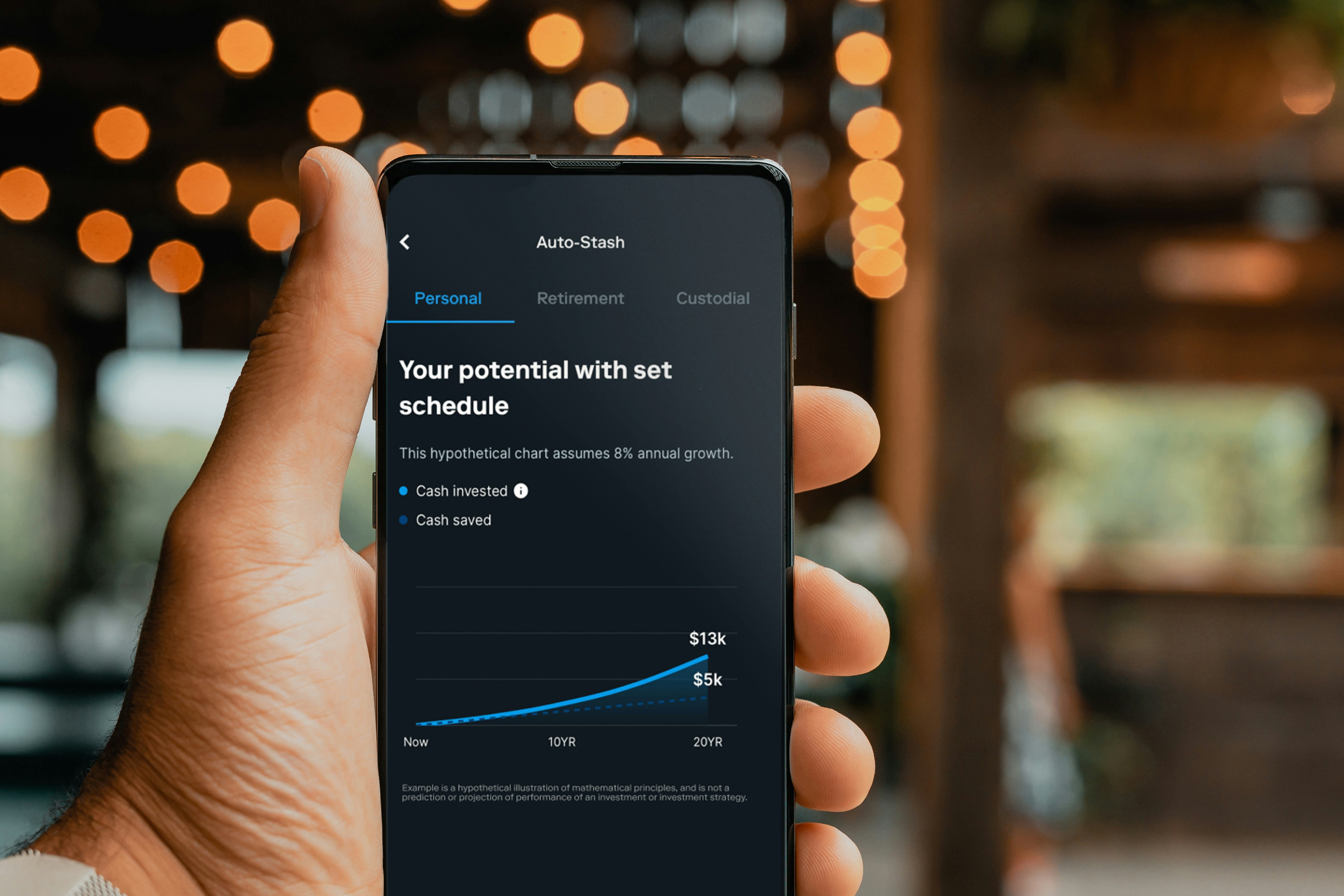Introduction
Freelancing offers a unique blend of flexibility and independence, yet it comes with its own set of financial challenges. Unlike traditional employment, where income is predictable and expenses are often consistent, freelancers frequently grapple with fluctuating earnings, irregular payment cycles, and varying project costs. This inconsistency can lead to uncertainty, making it imperative for freelancers to adopt effective financial management strategies.
One of the most critical aspects of being a successful freelancer is cultivating strong financial habits. The ability to manage one’s finances effectively can be the distinguishing factor between thriving and merely surviving in the freelancing landscape. Without a solid foundation in financial literacy, freelancers may find themselves overwhelmed by their economic circumstances, leading to stress and potentially jeopardizing their professional careers.
Moreover, with the rise of the gig economy, an increasing number of individuals are exploring freelancing as a viable career option. This transformation underscores the necessity of understanding sound financial practices tailored for the unique environment in which freelancers operate. Key money habits such as budgeting, setting aside emergency funds, and planning for taxes not only contribute to financial stability but also encourage a mindset oriented towards long-term growth.
In this blog post, we will delve into ten essential money habits that can significantly enhance the financial health of any freelancer. By integrating these practices into your daily routine, you can navigate the complexities of freelancing with greater ease and confidence. From optimizing your income streams to implementing effective savings strategies, these habits will serve as a roadmap to achieving not just financial security but also enduring success in your freelance career.
Understanding Your Income Streams
In the freelance landscape, understanding your income streams is paramount for long-term success. Unlike traditional employment, freelancers often rely on multiple sources of income that can vary significantly in terms of reliability and profitability. To achieve a stable financial situation, it is essential for freelancers to identify, track, and manage these diverse income sources effectively.
Diversifying income streams is one of the most effective strategies for freelancers. By developing multiple revenue channels, such as freelance writing, graphic design, consulting, or teaching online classes, one can mitigate the risks associated with project fluctuations and income inconsistency. This strategy not only enhances earning potential but also protects against the volatility of relying solely on one client or project. For instance, if one project is delayed, income from another source can help bridge the gap.
To maintain clarity on these various income streams, freelancers must keep meticulous records. Employing tools like spreadsheets or project management software can be valuable in monitoring different clients and their respective projects. By organizing data on the income generated from each source, freelancers can develop a comprehensive understanding of their overall financial picture. This insight is essential for making informed decisions about where to focus efforts and which projects are yielding the best returns.
Another important aspect of managing inconsistent income is establishing a financial buffer. Freelancers should aim to save a portion of their earnings during peak months to cushion against leaner times. This financial planning allows for more stability and reduces stress when income is slow.
Incorporating these strategies into your freelance routine will not only enhance your understanding of income streams but will also pave the way for a more secure and prosperous freelance career.
Creating a Budget
Establishing a budget is a fundamental step for freelancers aiming to achieve financial stability and success. Given the variable nature of freelance income, it becomes crucial to outline a financial framework that accommodates both expected earnings and potential fluctuations. The first step in creating a budget involves assessing one’s income sources. Freelancers should record all projected earnings, based on past projects and expected clients, to form a realistic income estimate.
Subsequently, categorizing expenses is the next pivotal phase. Common expense categories for freelancers often include workspace costs, software subscriptions, marketing, and professional development. It is advisable to track variable and fixed expenses separately. Fixed expenses, like monthly software subscriptions or internet bills, typically remain constant, while variable expenses—such as office supplies and client-related costs—tend to fluctuate. This clear categorization helps freelancers understand where their money goes, encouraging mindful spending.
Tracking income and spending can be effectively managed through various budgeting tools. Numerous apps and software solutions are available, specifically designed for freelancers, simplifying the task of recording all financial activities. Regularly inputting data ensures that budgets remain current, ultimately making it easier to monitor progress against financial goals. Additionally, setting aside a portion of variable income for savings or emergency funds helps mitigate the stress of income variability.
As client demands and project availability can shift dramatically, it is vital for freelancers to remain adaptable with their budgets. This may involve revising expenditure categories or adjusting income forecasts periodically. By maintaining a proactive stance on budget management, freelancers can better navigate the uncertainties of their profession, ultimately leading to greater financial confidence and success.
Setting Aside Money for Taxes
One of the most critical money habits for freelancers is effectively managing tax liabilities. Unlike traditional employees, freelancers are responsible for their own taxes, which can lead to financial surprises if not approached with diligence. To begin with, it is essential to estimate your tax obligations accurately based on your income. A common guideline is to set aside approximately 25-30% of your earnings specifically for tax purposes, although this percentage may vary depending on your income level and local tax regulations.
Understanding your local tax laws is essential to avoid underestimating your liabilities. Freelancers should familiarize themselves with the deductions and credits available to them, as this can significantly reduce taxable income. Common deductions might include home office expenses, travel costs, and equipment purchases. It is advisable to keep detailed records of all income and expenses throughout the year, as this practice simplifies the estimation of tax liabilities and aids in successful tax filing.
Once you have a clear understanding of potential tax obligations, the next step is to establish a system for setting aside money regularly. This can be accomplished through a dedicated savings account earmarked for taxes, where you can deposit the estimated percentage of your income as you receive payments. This habit not only helps in avoiding last-minute scrambles but also ensures that you have ample funds to meet tax deadlines. Freelancers should also be aware of quarterly payment requirements, as failing to pay estimated taxes on time may incur penalties.
Ultimately, by prioritizing the setting aside of funds for taxes in your financial planning, you will pave the way for a more secure and sustainable freelance career, free from the burden of unexpected tax-related financial strains.
Building an Emergency Fund
For freelancers, the importance of establishing an emergency fund cannot be overstated. Unlike traditional employees, freelancers face income variability; this unpredictability underscores the need for a financial safety net. An emergency fund serves as a buffer against unforeseen expenses, such as medical emergencies or unexpected repairs, and provides peace of mind during lean periods when work may be scarce. Typically, it is recommended that freelancers aim to save three to six months’ worth of living expenses, ensuring that they can sustain their livelihoods even during dry spells.
Determining the appropriate amount to save may seem daunting, but a structured approach can streamline the process. Start by calculating your essential monthly expenses, which include housing, food, utilities, and any debt payments. This figure will help establish a target for your emergency fund. Once you know your target, it can be beneficial to break this goal into manageable monthly savings targets. For instance, if you aim to save $6,000 and wish to achieve this in a year, saving $500 each month is a practical plan.
Choosing the right account to keep your emergency fund is equally important. Opt for a high-yield savings account that allows easy access to your funds while providing reasonable interest on your savings. This combination ensures that your money grows while remaining readily available should an emergency arise. Additionally, automating your monthly contributions can simplify the saving process. Set up a direct transfer to your designated savings account each month, treating it as a non-negotiable expense.
As daunting as it may seem, building an emergency fund gradually will help you gain confidence in your financial stability. This buffer not only eases stress during financial uncertainty but also empowers freelancers to pursue new opportunities without the fear of immediate monetary repercussions. Developing and maintaining an emergency fund is a fundamental financial practice that supports long-term success in freelancing.
Investing in Personal Development
As a freelancer, continually enhancing your skills and knowledge is paramount to staying competitive and maximizing your earning potential. Investing in personal development can take many forms, including enrolling in courses, attending workshops, and participating in networking events. Each of these avenues provides unique opportunities to grow both professionally and personally, which can ultimately lead to more lucrative freelance opportunities.
Online courses have become increasingly accessible and cover a wide array of topics relevant to freelancers, from digital marketing strategies to advanced programming techniques. Platforms such as Coursera, Udemy, and LinkedIn Learning allow freelancers to learn at their own pace and acquire skills that align with market demands. Completing these courses not only enhances your expertise but also expands your portfolio, making you a more attractive option for potential clients.
Workshops, whether local or virtual, provide interactive learning experiences that can significantly boost your knowledge base. These sessions often feature industry experts and provide hands-on training in specialized areas. Participating in workshops allows you to ask questions and receive immediate feedback, which can facilitate deeper understanding of complex subjects. As a freelancer, honing specific skills through these avenues helps to increase your value and differentiate you in a crowded marketplace.
Networking events, meanwhile, play a crucial role in personal development by helping you establish connections within your industry. Engaging with other professionals can lead to collaborative projects and referrals, further enhancing your career. Building a strong professional network often opens doors to new and exciting opportunities, ultimately leading to higher earnings. Together, these investments in personal development not only improve your capabilities but significantly contribute to your overall success as a freelancer.
Tracking Expenses Diligently
For freelancers seeking financial success, tracking expenses diligently is of paramount importance. In a field where income can be inconsistent, maintaining a clear overview of expenditures is essential for both financial clarity and tax preparation. By carefully recording business-related costs, freelancers can not only manage their budgets more effectively but also identify areas where savings can be achieved.
To effectively track expenses, freelancers can utilize a range of methods and tools. One popular option is financial tracking software such as QuickBooks, FreshBooks, or Wave, which allow users to categorize expenses as they arise, automating what can often be a tedious task. These platforms enable freelancers to separate personal from business expenses with ease, ensuring that financial records remain organized and compliant with tax regulations. Moreover, mobile applications like Expensify or Mint provide on-the-go solutions, making it simple to log expenses immediately and reducing the potential for oversight.
An important strategy for freelancers is to establish a consistent method for differentiating personal and business-related expenses. Creating distinct bank accounts or credit cards for business use can greatly simplify this process. This separation ensures clear boundaries and allows freelancers to track business expenses accurately, leading to a more streamlined approach when preparing for tax season.
The benefits of diligently tracking expenses extend beyond mere budget management. By keeping a close eye on spending patterns, freelancers can gain valuable insights into their financial habits. This awareness can lead to more informed decisions regarding spending, pricing, and investment in business growth. In a profession characterized by variability in income, cultivating good habits surrounding expense tracking can contribute significantly to achieving financial stability and success.
Networking and Building Relationships for Stability
Networking is an indispensable aspect of any successful freelancer’s journey. The ability to build and maintain professional relationships can significantly contribute to financial stability and growth. By effectively connecting with peers, clients, and industry-related individuals, a freelancer can open the door to countless opportunities, including referrals and repeat business. Establishing a solid network not only helps in acquiring new clients but also provides a support system that can be invaluable during challenging times.
One effective strategy for networking is to actively participate in industry events, seminars, or workshops. These gatherings allow freelancers to meet potential clients and collaborators face-to-face, establishing rapport and fostering trust. When attending these events, it is essential to approach conversations with a genuine interest in others’ work. Listening and engaging meaningfully can lead to lasting connections that may translate into future projects.
Another critical aspect of successful networking is utilizing online platforms such as LinkedIn or industry-specific forums. These platforms offer freelancers a valuable space to showcase their skills, share insights, and engage with a broader audience. Crafting a compelling online presence is key, as it can draw potential clients and collaborators. Regularly updating profiles, sharing relevant content, and participating in discussions can position freelancers as knowledgeable professionals within their field, further solidifying their networking efforts.
Maintaining relationships is just as crucial as establishing new ones. Regularly checking in with past clients or contacts can keep the lines of communication open, paving the way for future collaborations. Sending brief updates about projects, sharing industry news, or even just reaching out to catch up can reinforce connections and demonstrate ongoing interest. In essence, a freelancer’s ability to network and cultivate meaningful professional relationships not only enhances their credibility but also plays a fundamental role in achieving financial stability in their freelance endeavors.
Reviewing and Adjusting Financial Goals Regularly
For any successful freelancer, regularly reviewing and adjusting financial goals is a crucial component of their journey. Financial landscapes are dynamic and often shift in response to various factors. Therefore, it is essential to assess one’s performance and adapt in accordance with changes in personal circumstances and market conditions. Setting robust financial goals initially serves as a foundation, but consistent evaluation helps ensure that these objectives remain relevant and attainable.
One effective strategy to assess financial progress involves tracking income and expenses meticulously. Utilizing budgeting tools or software can facilitate this process, providing a clearer picture of where money is going and identifying potential areas for improvement. By reviewing these figures on a monthly or quarterly basis, freelancers can determine if they are on track to meet their financial aspirations. Furthermore, re-evaluating these financial targets in light of recent achievements or shifts in workload can aid in setting more realistic timelines and expectations.
Additionally, freelancers should consider their evolving personal and professional goals. For instance, if a freelancer has taken on more clients or expanded their services, their previous financial goals may no longer be suitable. Adjusting budgets to reflect changes in income, expenses, and financial commitments is vital in maintaining financial health. Moreover, it is beneficial to incorporate buffer amounts for unforeseen expenses or periods of lower income, ensuring resilience against volatility in freelance work.
In conclusion, the consistent review and adjustment of financial goals enable freelancers to navigate the ever-changing landscape of their careers effectively. Achieving financial stability requires proactive engagement and adaptability, making it essential to revisit these goals and ensure they align with the freelancer’s ongoing journey.


